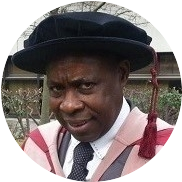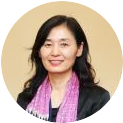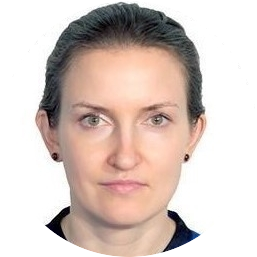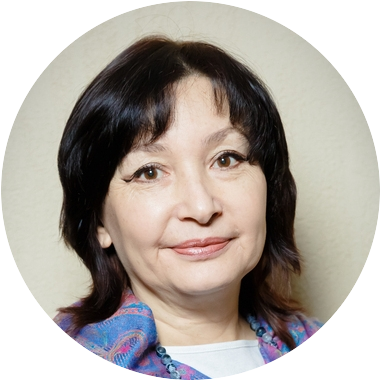"Sustainability begins with teachers in Central Asia" – the results of the UNESCO sub-regional workshop in Almaty
June 19-23, 2017, Almaty hosted a workshop for teacher educators of Central Asian countries on the UNESCO project. This is a global initiative to increase the professional level of pedagogical staff for the implementation of education for sustainable development through the training of teachers.

The UNESCO Cluster Office for Central Asia in Almaty organized the workshop, in cooperation with the UNESCO Asia-Pacific Regional Bureau for Education, Asia-Pacific Education Centre for International Understanding under auspices of UNESCO (APCEIU), and the Regional Environmental Centre for Central Asia (CAREC). The event received financial support from the Japanese government.
70 experts from 9 countries, including representatives of ministries, universities, and teacher training institutions from Central Asia, and international experts from the Republic of Korea, Sweden, Georgia, and Philippines attended the workshop.
The workshop used a new methodology, whereby each participating institution conducts a self-assessment on education for sustainable development (ESD) and global citizenship education (GCED) before the seminar and prepares a review of its work. These reviews will form the basis for the implementation of subsequent changes in teacher education and training systems in the region.
__________
We talked with the organizers and speakers of the workshop about its results, the importance of nurturing a sense of education for sustainable development and global citizenship and the values to ensure the transition to quality education.
Shepherd Urenje, SWEDESD:
 «The main reason why these people are here is that the current education is not able to prepare the young generation to solve the problems of the 21st century. People like me cannot solve them because I am part of these problems: the way I think, the way I was educated and the way I define success have created these problems. But young people can confront these challenges in a different way. They can do it if we help them to learn differently, if we teach them how to think critically, if they will learn how to learn.
«The main reason why these people are here is that the current education is not able to prepare the young generation to solve the problems of the 21st century. People like me cannot solve them because I am part of these problems: the way I think, the way I was educated and the way I define success have created these problems. But young people can confront these challenges in a different way. They can do it if we help them to learn differently, if we teach them how to think critically, if they will learn how to learn.
What is happening right now is that we have students of today being taught by teachers of yesterday, like me, using methods that we have inherited from the medieval times and we expect them to solve problems of the future.
During the workshop, we got a very enthusiastic group of people who are willing to implement changes while most of them are very experienced professors, and they’ve been doing a great work in their institutions. The most important things that come throughout the presentations and speeches are that they do realize that we need changes, they do realize that we have to use different methods and they do realize that we need to look at teaching and learning in a different way»
Yangsook Lee, APCEIU:
 «When we talk about education in terms of sustainable development it is not just about “you are getting there by these means”. It should be an ongoing and continuing process with the involvement of all stakeholders.
«When we talk about education in terms of sustainable development it is not just about “you are getting there by these means”. It should be an ongoing and continuing process with the involvement of all stakeholders.
Of course, it is not easy to change the education system and mindset of educators, but doing this workshop, however small, is meaningful for sharing experience and raising the awareness.
Since one of the objectives of this workshop is to enhance the understating of the concept of education for global citizenship and sustainable development, after five days, I am very happy to see that each participating institution presented a better vision and more concrete action plans for educational transformation»
Ushio Miura, UNESCO Asia-Pacific Regional Bureau for Education:
.png) «Sustainable development demands a lot of re-thinking from all of us, about what we consider important in our lives, about our future, about our values… And education is critical in that process, to support all of us in changing the way we think, the way we live.
«Sustainable development demands a lot of re-thinking from all of us, about what we consider important in our lives, about our future, about our values… And education is critical in that process, to support all of us in changing the way we think, the way we live.
There is no single method or solution for sustainable development. If there were, if it were that simple, then the whole world would not be struggling for sustainable development today.
Different countries have different contexts. Even within one country, issues manifest differently in different communities. So, every community needs to look around, think and explore because solutions come from you, not from someone else who will tell you what to do.
That is why during the workshop, the participants assessed their own institutions, to find what they have been doing well, and not so well, then think about what changes they would like to make»
Lina Benete, UNESCO Almaty Cluster Office
 «This workshop focused on education for sustainable development and global citizenship. They are crucial for developing non-cognitive competences for the 21st
century. These skills can enable students to get future jobs and have sustainable development in their countries.
«This workshop focused on education for sustainable development and global citizenship. They are crucial for developing non-cognitive competences for the 21st
century. These skills can enable students to get future jobs and have sustainable development in their countries.
The workshop helped to establish synergies among teacher training, education policy, curriculum, and innovative pedagogical approaches.
The participants of the workshop acquired the necessary knowledge and attitudes to transfer them to their students. Their skills combined with a fresh perspective can create transformation not just in their institutions but also in their countries.
Now there is a strong network of Central Asian educators on ESD and GCED. We will work together over the next years to have sustainable development in Central Asia as part of the global effort»
Tatiana Shakirova, CAREC
 «This workshop differs from many seminars, training and meetings on education for sustainable development (ESD) with its practical focus on changes towards sustainable development and ESD in the organizations themselves, preparing future teachers - universities and teachers training' centers.
«This workshop differs from many seminars, training and meetings on education for sustainable development (ESD) with its practical focus on changes towards sustainable development and ESD in the organizations themselves, preparing future teachers - universities and teachers training' centers.
For me, the workshop gave an interesting opportunity to think about changes not only at the national level - political and legal but also about real changes in the minds, hearts, behavior, and lifestyle of teachers and their students.
The project makes it possible to tell about the different views to the institutes and universities preparing teachers of the 21st century, ready for change and capable of promoting them»
Factsheet:
• In developing countries, the number of children enrolled in primary education reached 91%. However, the number of school-age children not attending school worldwide is still 57 million.
• According to some estimates, 50% of primary school-age children not attending school live in areas affected by the conflict.
• 103 million young people around the world do not have basic literacy, with more than 60% of women.
• 40% of the world's population does not have the opportunity to receive education in a language they understand
